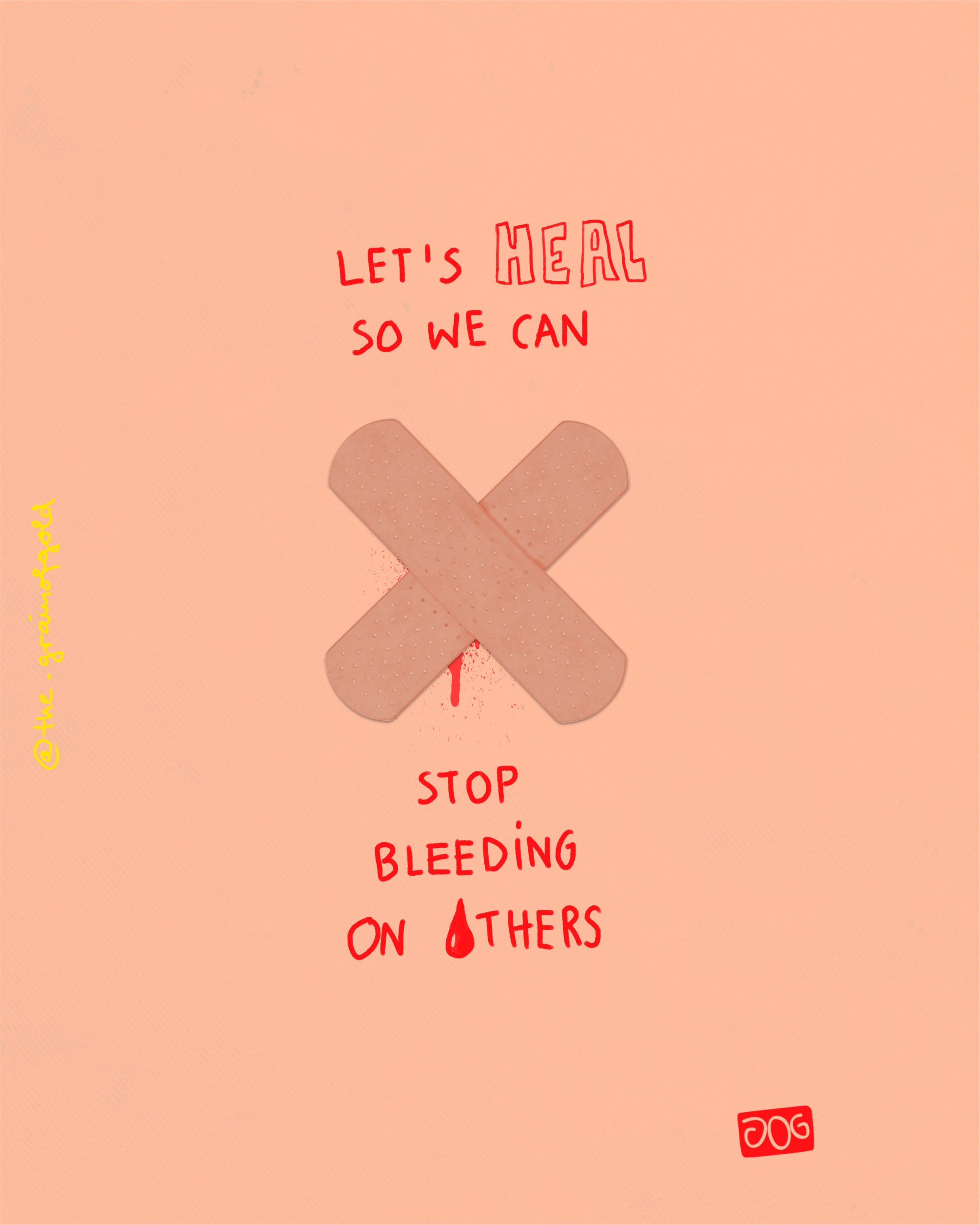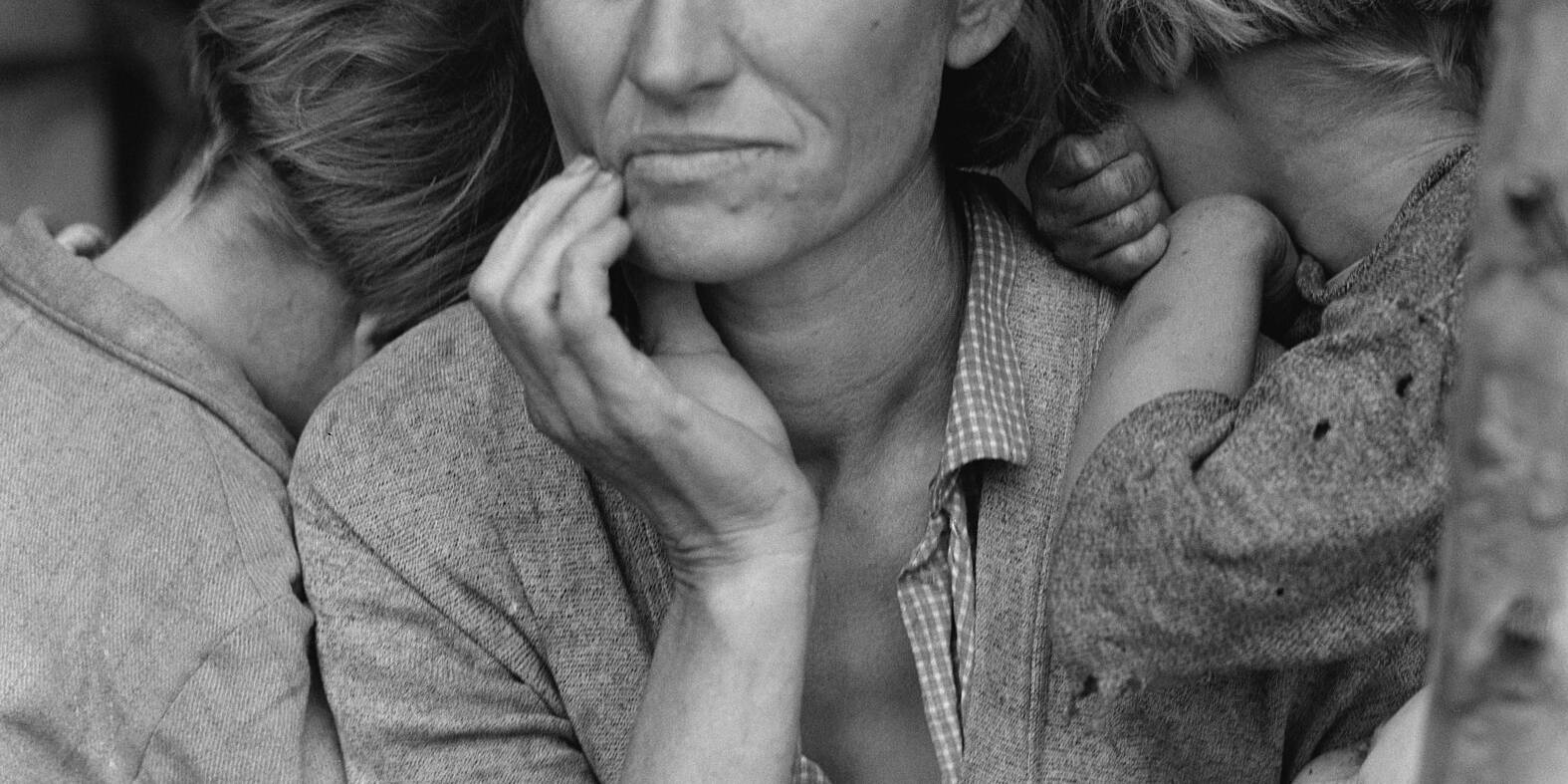Let’s heal so we can stop bleeding on others
When we go through tough emotional experiences, it’s not uncommon for us to carry that pain into our relationships, sometimes without even realizing it. This can lead to a cycle where “hurt people hurt people” – even if unintentionally. Those of us who have experienced childhood trauma may unintentionally pass our pain onto others. It’s not that we want to cause harm, but when we carry unresolved wounds, we might react in ways that spread that pain to those around us.
It’s like our pain is leading the charge, and others around us might end up feeling the brunt of it.
For example, if we feel attacked – whether it’s a comment that hits a nerve or a situation that brings up old wounds – we might go on the defensive. Sometimes, that defense looks like a counterattack, snapping back or lashing out, even if the original comment wasn’t meant to hurt. It’s like our pain is leading the charge, and others around us might end up feeling the brunt of it.
In this cycle, we often see ourselves as victims, which makes us more likely to interpret actions or words as personal attacks. This isn’t because we want to stir up conflict, but because our past has taught us to be on guard. When we feel threatened, even if it’s just perceived, we might strike out to protect ourselves.
When we feel threatened, even if it’s just perceived, we might strike out to protect ourselves.
This defensive behavior can create a tough situation where trust becomes hard to build. We might unintentionally push people away, leading to loneliness and frustration. It’s not that we want to be isolated, but our reactions – shaped by past pain – can make it difficult to maintain close connections.
But here’s the thing: this cycle doesn’t have to continue. Breaking out of it is possible with some awareness and inner work.
Challenge the Victim Mentality: It’s easy to fall into thinking that everyone is out to get you when you’ve been hurt before.
Here are a few steps that can help:
1. Recognize the Pattern: Start noticing when you’re feeling defensive or like you’re under attack. Ask yourself if the situation is really as bad as it seems, or if past experiences are coloring your view.
2. Pause Before Reacting: When you feel the urge to counterattack, take a moment to breathe. Ask yourself if there’s a different way to respond that won’t escalate the situation. Sometimes, just taking that pause can prevent a hurtful reaction.
3. Challenge the Victim Mentality: It’s easy to fall into thinking that everyone is out to get you when you’ve been hurt before. Try to challenge that mindset by considering other possibilities. Could there be a misunderstanding? Is the person really trying to hurt you, or is that just how it feels in the moment?
4. Seek Support: Healing from these patterns often requires outside help. Therapy, support groups, or even a trusted friend can offer new perspectives and help you work through the underlying pain.
5. Practice Self-Compassion: Be gentle with yourself. Breaking old habits takes time, and you’re allowed to have setbacks. The important thing is to keep trying and to treat yourself with the kindness you deserve.
6. Stay Present: When you feel those old emotions rising, try grounding yourself in the present. Remind yourself that you’re in a different place now and that not every situation is a repeat of the past. Mindfulness exercises can be helpful here.
Breaking the cycle of hurting others because of your own hurt isn’t easy, but it’s definitely possible. With some patience and support, you can move from reacting out of pain to responding with more understanding, both for yourself and others.
You may also like
The Mother Wound: Understanding Learned Co-Dependency
Co-dependency often gets trivialized as simply being "too…
Confronted with a tough truth – Deceiver and deceived
There are moments in our lives when we face uncomfortable…
Someday I will be happy – When words destroy togetherness
"Someday I will be happy," he said. Lying on the bed, he…





